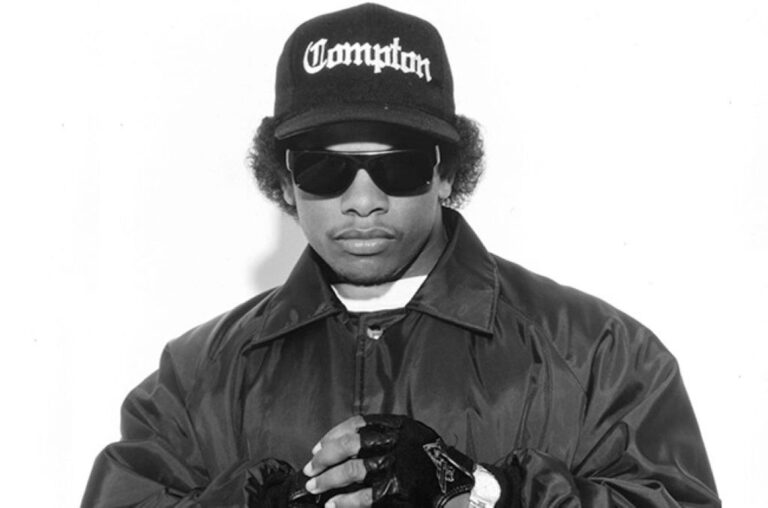Eazy-E's Battle With AIDS: His Untimely Death & Legacy
How does one reconcile the vibrant energy of youth with the devastating reality of a life cut short? Eazy-E's story, a tale of meteoric rise, groundbreaking artistry, and a tragic battle against AIDS, serves as a poignant reminder of life's fragility and the enduring power of legacy.
The music world, in 1995, reeled with shock and disbelief. Eric Lynn Wright, better known to the world as Eazy-E, the N.W.A. frontman, had succumbed to AIDS. The announcement of his illness, just weeks prior to his passing, sent ripples of shockwaves throughout the rap community and beyond. He was only 31 years old.
| Eazy-E: Biographical & Professional Overview | |
|---|---|
| Full Name: | Eric Lynn Wright |
| Born: | September 7, 1964, Compton, California, USA |
| Died: | March 26, 1995 (aged 31), Los Angeles, California, USA |
| Cause of Death: | AIDS-related complications |
| Occupation: | Rapper, Record Producer, Entrepreneur |
| Known For: | Founding member of N.W.A., Solo artist, Ruthless Records |
| Musical Style: | Gangsta Rap, West Coast Hip Hop |
| Notable Albums: |
|
| Key Contributions: | Pioneered Gangsta Rap, Helped launch the careers of many artists, built a successful independent record label. |
| Associated Acts: | N.W.A., Dr. Dre, Ice Cube, MC Ren, DJ Yella, Bone Thugs-n-Harmony |
| Legacy: | Revolutionized rap music, Influenced generations of artists, Remains an iconic figure. |
| Reference: | Biography.com: Eazy-E |
Born Eric Lynn Wright in Compton, California, Eazy-E's journey from the streets to the music charts is the stuff of legends. He was more than a rapper; he was a businessman, an entrepreneur who understood the power of music to create a movement. His raw, unapologetic lyrics and distinctive voice, a nasal, rapid-fire delivery, set him apart. He was the voice of a generation, speaking truth to power and giving a platform to the marginalized and unheard. He found his voice and his platform with N.W.A. The group's arrival was a seismic shift in the music world.
- Lewis Blacks Net Worth In 2024 Beyond Income Career
- Christopher Brineys Net Worth Fortune The Summer I Turned Pretty Actor
The story of N.W.A is intrinsically linked to the narrative of Eazy-E. The group, comprised of Eazy-E, Dr. Dre, Ice Cube, MC Ren, and DJ Yella, emerged from the volatile streets of Compton, offering a brutally honest depiction of life in the inner city. Their music, labeled "gangsta rap," was controversial, lauded, and often censored, but it was undeniably authentic. N.W.A's album, Straight Outta Compton, released in 1988, was a cultural touchstone, a statement of defiance, and a commercial success that shattered barriers. The album's impact reached far beyond the music industry. The group became a lightning rod for controversy, drawing fire from law enforcement and politicians who decried their explicit lyrics. But the group and the album also sparked a vital dialogue about race, poverty, and police brutality in America.
Eazy-E, with his entrepreneurial spirit and shrewd business acumen, was the driving force behind Ruthless Records, the independent label that launched N.W.A and later signed other groundbreaking artists, including Bone Thugs-n-Harmony. His role as a businessman was as significant as his artistry. He built an empire from the ground up, proving that authenticity, innovation, and a willingness to take risks could yield significant rewards.
The early 1990s saw Eazy-E achieve significant success and notoriety. His solo career, marked by albums like Eazy-Duz-It, further solidified his status as a rap icon. His signature style and unique vocal delivery made him instantly recognizable. The lyrics, often laced with tales of street life and the harsh realities faced by many, resonated with fans across the country, particularly those who identified with the experiences he portrayed.
- Markys Caviar Net Worth A Deep Dive Into The Luxury Food Brand
- Kyle Idlemans Salary Net Worth 20242025 Insights
Then came the devastating news. In early 1995, Eazy-E announced that he had contracted AIDS and was in dire condition. The revelation sent shockwaves through the music world and beyond. It was a moment of profound sadness. Here was a young, vibrant artist, a symbol of health and vitality, facing a life-threatening illness. The announcement was made public only a few weeks before his tragic death on March 26, 1995. The news of Eazy-E's illness and his untimely demise sparked a much-needed conversation around HIV/AIDS, especially within the African American community, which had been disproportionately affected by the epidemic. It also spurred an outpouring of grief and tributes from fans, fellow artists, and the wider community.
Eazy-E's death served as a stark reminder of the indiscriminate nature of the disease. The disease had ravaged the music industry, taking lives of many talented individuals. It highlighted the importance of awareness, prevention, and the need for open dialogue about sexual health. His final days, which were marked by his courage and resilience, became a testament to the power of the human spirit. His battle with AIDS raised numerous questions about how the virus spreads, and what steps can be taken to protect oneself and others. His story served as a catalyst for conversations that continue to this day, conversations about safe sex practices, testing, and the fight against the stigma of the disease.
In the wake of Eazy-E's passing, his legacy grew, and the impact he made on the music industry and the culture at large. He had shattered barriers and paved the way for future generations of rappers. He helped change the landscape of the music business by founding a label that offered opportunities to young artists. His music continues to resonate with listeners, with a sound that is both innovative and timeless. His impact can still be seen in the works of the rappers that came after him, and the business practices that have been used to build the careers of major artists.
The recent success of the N.W.A biopic, Straight Outta Compton, served as a timely reminder of Eazy-E's influence. The film, which broke down the viral video why it went global breaking down the viral video why it went global and brought the group's story to a new audience, showcased the group's raw energy and their pivotal role in shaping the history of rap. It also highlighted the complex dynamics between the group members and the circumstances that ultimately led to their success.
Beyond his musical achievements, Eazy-E's life story is a testament to resilience. He overcame numerous obstacles to achieve success and left a legacy that continues to inspire. Eazy-E also found support and love in his personal life, as demonstrated through his marriage and the encouragement he received from his wife, which highlighted the importance of support, even amidst challenges.
Eazy-Es story is far from an isolated event. His battle with AIDS reminds us of the importance of open conversations and the importance of seeking support and knowledge. His courage to speak out about his condition helped to break down the stigma and encouraged others to seek treatment and care. His legacy extends beyond the music, inspiring individuals to take charge of their health and advocate for awareness. Eazy-E's life is a reminder that even in the face of adversity, resilience, and artistic expression can leave an enduring mark on the world.
The loss of Eazy-E created a void in the music world, but his music and his influence lives on. He is remembered not only for his groundbreaking contributions to music, but also for his courage and his willingness to confront the harsh realities of life head-on. His life story reminds us of the importance of speaking out about health issues, advocating for education, and supporting those affected by devastating diseases. His life remains a testament to the power of art, the enduring force of human connection, and the lasting impact one individual can have on the world. His battle with AIDS serves as a stark and timely reminder that the fight for health and well-being is a continuous journey, a journey that requires compassion, understanding, and the unwavering commitment to create a world where all can live healthy lives.
- Jimmie Vaughan Net Worth How Much Is The Blues Legend Worth
- Mark Ramseys Net Worth 2025 Moonshiners Stars Finances

How Did Easy E Get AIDS? The Untold Story

After Eazy E Died, This Concert Changed How Hip Hop Saw HIV/AIDS

Unraveling The Mystery How Did Eazy Get AIDS?